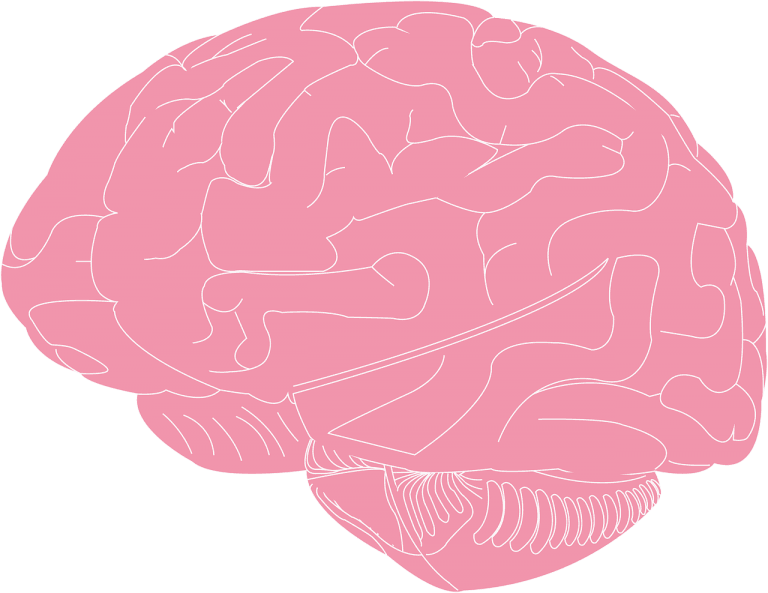Nootropic agents have recently been conquering people's hearts. This is not surprising, because everyone feels the need to be the best, and the vision of above-average intellectual abilities and great well-being is very attractive. However, one can get the impression that the development of information sources does not keep up with the progress of interest, which means that many people feel lost and do not know what really is best for them. We will therefore try to get around a few basic aspects, with supplementation improving memory in the foreground.
What is memory and how is it formed?
Memory is one of the basic brain abilities that allows us to store information collected from the world around us and use it during life, when we need it. This information also applies to sensory impressions and dependencies between different memories, which makes it possible to associate different data with each other. Thanks to our memory, we have the opportunity to learn and develop.
Due to the duration, memory is divided into three types: sensory, working (short-term) or long-term. There are many other divisions, but this is what interests us most. Several areas in the brain are responsible for memory, depending on its type. For example, the hippocampus is associated with spatial memory and declarative memory, which is a long-term record of data that we can then consciously extract. The amygdala, in turn, is responsible for the memory associated with emotions and for their processing.
We know, therefore, how important memory is, let us look at the mechanisms to which we owe it. What does the brain need to memorize? Glutamate. It’s a stimulatory neurotransmitter strengthening the activity of neurons. By activating appropriate receptors, such as NMDA receptors, AMPA or metabotropic mGluR, it intensifies the process called long term potentiation (LTP). Under this mysterious name, there is the possibility of making changes in the connections between neurons, so as to consolidate the information.
The next neurotransmitter we need to learn efficiently is acetylcholine. Receptors that are activated by it (both nicotine and muscarinic) are involved in memory formation processes. This is evidenced by the fact that in scientific research substances blocking these receptors (scopolamine) are used to cause problems with memory. The use of scopolamine results in a disruption of the acquisition of new information and impairment of working memory. It’s also known that acetylcholine increases the efficiency of the long-term synaptic enhancement process.
So to the point. What to take to improve memory?
We have at our disposal quite a large package of substances that can support the formation of memory. They will be especially useful during periods in which we must effectively assimilate a large package of information, but can also be helpful in everyday life, when we feel that our ability to learn and recall is not optimal. Let's look at the popular measures that can help us effectively in the fight for greater mental efficiency.
Alpha GPC
The form of choline that effectively enters the brain and can be converted to acetylcholine, thus increasing its concentration in the brain. As mentioned above, acetylcholine is important for efficient learning, and Alpha GPC is one of the basic means with which you can start. Many people even feel its effects. Alpha GPC causes an increase in PKC activation, which is involved in the process of long-term synaptic strengthening. The effective dose range is 600-1200 mg, and can be supplemented both regularly and ad hoc.
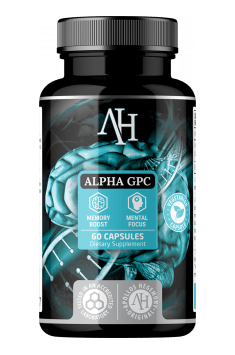
CDP Choline
A little more advanced than Alpha GPC supplier of choline to the brain, because it also carries uridine. It has a lower content of choline per molecule, however, the mentioned uridine compensates for this with additional benefits. It’s much better in regular supplementation than it’s ad hoc. Uridine strengthens cell walls and enhances the growth of neurons, which improves the overall condition of the nervous system. Thus, citicoline supports our brain quite comprehensively, and the action improving memory already shows in doses of 500-1000 mg per day.
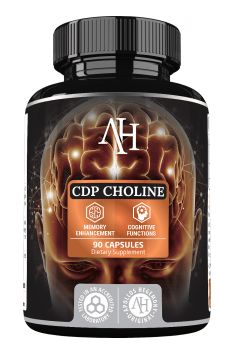
Huperzine A
Another agent affecting acetylcholine, however, from a different side. As the previous two provided a precursor for construction, so it allows you to keep a larger amount of acetylcholine, which we already have in circulation. This is due to the property of inhibiting the activity of the enzyme acetylcholinesterase, which is designed to decompose the neurotransmitter, which, however, we would like to remain in slightly higher concentrations. Doses of 100 mcg of hupercine may already positively affect the memory for young people, but often this dose is increased to 200 mcg in healthy people. For therapeutic purposes in Alzheimer's disease Hupercine is used in doses starting from 400 mcg, and can reach even up to 800 mcg per day.
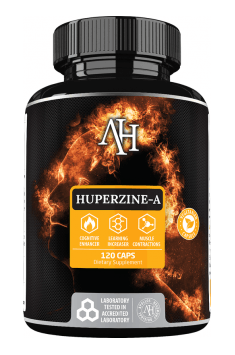
Bacopa Monnieri and Gotu Kola
These two Ayurvedic herbs intensify the expression of the neurotrophic factor BDNF, thanks to which they stimulate the growth of neurons and the development of the nervous system. It’s common to use them together, based on the Ayurvedic Brahmi formula, but the use of only one of them at a time is also effective. These herbs should be taken regularly for a minimum of 6 weeks, because the process of neurogenesis, unfortunately, takes time. However, in this case it’s definitely worth waiting. In research, Bacopa performs very favourably because it improves cognitive functions - information processing speed, learning speed and memory consolidation, and the intensity of effects depends on the time of application. Gotu Kola or Centella Asiatica has less support in human studies, but in vitro and in vivo rodent experiments are very promising. In addition, Gotu Kola can accelerate wound healing. If we were to choose from these two, Bacopa should be a better choice for improving memory and the overall condition of the brain.
Ginkgo Biloba
Most likely, the most popular remedy for memory improvement. Ginkgo is used in various forms - tablets, capsules, tinctures and infusions of dried leaves. Numerous studies have been carried out on this plant, showing, among other things, an increase in the pos
sibility to recall information. However, it should be mentioned that Ginkgo Biloba is effective in older people rather than young people, which is why it’s an interesting option to combat cognitive decline at old age, but when we need support, for example during studies, it’s better to look for a more effective alternative. The range of effective doses is approximately 120-240 mg of this extract, and it’s worth sticking to the upper limit.
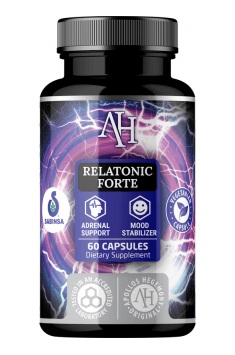
Glycine
This amino acid affects the activity of the major glutamatergic system receptors - NMDA receptors. To initiate ion flux in this receptor, not only is the presence of an activator, i.e. glutamate, but also glycine (or serine), which attaches to its binding site in the receptor complex. Without it, the flow of ions is not possible, and glutamate will not play its part. Glycine is active in the hippocampus, so in the region responsible for memory. Bearing in mind also other glycine activities, such as inhibition of the nervous system (it’s a neurotransmitter inhibiting, it works by its own receptors) or improving sleep quality, it may be a good choice for people stressed or complaining about low sleep efficiency who want to improve their condition with additional, potential memory support.
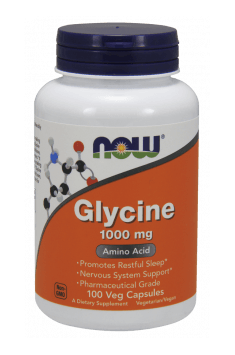
Noopept
One of the most popular of nootropics, developed in the east. It gives effects similar to another basic agent, which is piracetam, however, noopept has a greater potential for use in healthy people, and piracetam is effective mainly in elderly people or those who actually struggle with cognitive impairments. Noopept works by, among other things, raising BDNF and NGF factors, thus stimulating neurogenesis. Another action is to increase the sensitivity to acetylcholine, so we already have two significant mechanisms to strengthen memory. The third significant mechanism of action of noopept is the effect on the activation of HIF-1 (Hypoxia Inducible Factor 1) and the consequent expression of genes. As research shows, regular use of noopept results in improved short and long-term memory and the ability to concentrate. The suggested dosage range is 10-30 mg per day.
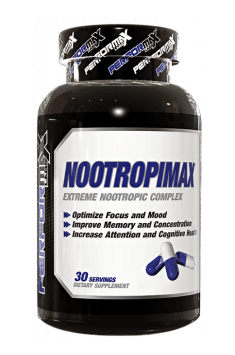
Brain Fuelv2
The core of this unique nootropic mix are two strong pro-cognitive agents - sunifiram and coluracetam. This combination gives a comprehensive effect on memory formation processes, as both intensify long-term synaptic reinforcement, doing it very effectively. Sunifiram is classified as ampakine, because its action is based mainly on the effect on the functioning of the AMPA receptor, which belongs to the glutamatergic system. It also affects the release of acetylcholine in the prefrontal cortex. Coluracetam, in turn, expands the bottleneck in the synthesis of acetylcholine, which is HACU (high affinity choline uptake). Additional ingredients are caffeine and N-acetyl -L-tyrosine, which increase the level of energy, motivation and focus to facilitate learning. Brain Fuel v2 is a unique formula that so effectively affects the ability to learn.
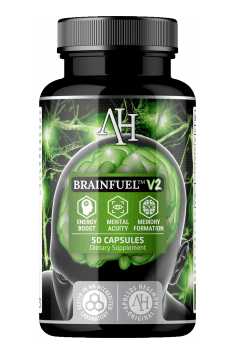
Game Over
This supplement was created for computer players, but it can be used by people who simply want to learn information more effectively. The combination of sunifiram and Alpha GPC will support both the cholinergic and glutamatergic systems. Caffeine and theanine, in turn, improve the ability to concentrate and multitasking abillity. Also a very interesting agent, quite similar in operation to Brain Fuel v2.
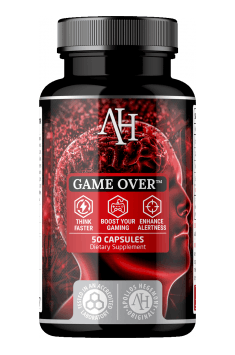
Summary
Knowing the mechanisms responsible for forming memory, we can choose the appropriate supplementation and help ourselves learn effectively, as well as help with everyday functioning, not to forget about important things for us, or even small details, such as a list of things to buy. The choice is abundant, so you can choose supplementation tailored to the person's expectations, as well as experiment with various products to determine which mechanism works the most effectively.
